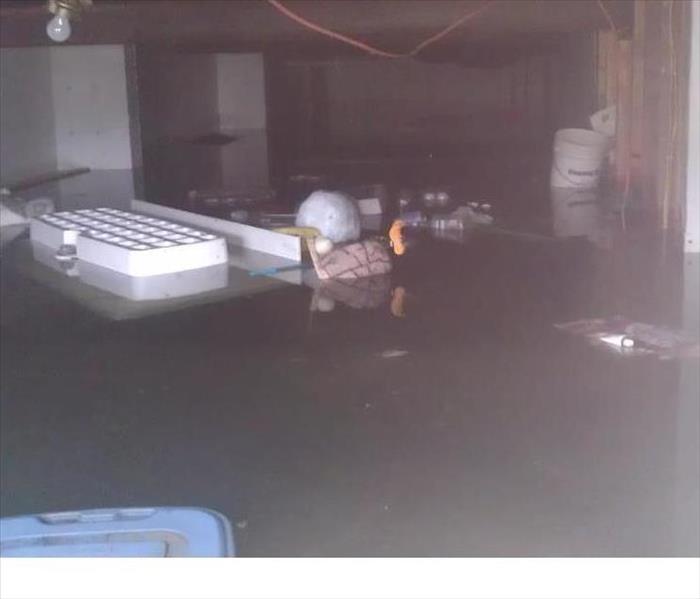Understanding Water Type
11/1/2019 (Permalink)
When your home or business suffers a water damage event, understanding what type of water you are dealing with is critical to ensuring proper cleanup. There are three Categories of water. Category 1 or clean water is water from a broken pipe, or other drinkable water source; Category 2 or grey water is water that is significantly contaminated. Category 2 water would be from a washing machine or dishwasher overflow. A toilet overflow can be category 2 or 3 depending on what is in the bowl when it overflows. Category 3 or black water is grossly contaminated and is typically caused by a sewage backup, or flood water. Category 3 water should always be handled by trained professionals. As you can see not all water is the same, and the process for cleaning it up will differ depending on the category of water you are dealing with. Consider taking the following precautions to help minimize damage or prevent further damage while waiting for help to arrive.
Damage from Clean Water:
-Shut off the water source if possible or contact a qualified professional to do so.
-Turn off circuit breakers for wet areas of the building if access to the power distribution panel is safe from potential electric shock. Do not enter rooms with standing water, as electrical shock hazards may exist.
-Remove as much excess water from wood furniture after removing lamps and tabletop items.
-Remove and prop up wet upholstery cushions to allow more even drying.
-Move any paintings, art objects, computers, documents and other valuable items that may be sensitive to moisture to a safe place.
-Do not leave books, newspapers, magazines or other colored items on wet carpets or floors as they may cause staining. Do not use your household vacuum cleaner to remove water as there is potential for electric shock or causing damage to the vacuum cleaner.
-Do not turn on ceiling fixtures if ceiling is wet; do not enter rooms where ceilings are sagging from retained water.
Damage from Contaminated Water:
-Avoid all contact with sewage and items contaminated by sewage. Wash your hands thoroughly if you come in contact with contaminated items.
-Do not walk through contaminated areas, as you could spread damage to unaffected areas.
-Do not turn on the HVAC system if there is a possibility of spreading contaminated air.
-Do not use household fans to dry the structure; airflow could spread contaminants.
-Discard any food and or products for personal hygiene and cleanliness if exposed to the contaminated areas.
When you have water damage don't' leave your property to chance. CALL SERVPRO of Lincoln & Warren Counties. We are READY FOR WHATEVER HAPPENS!



 24/7 Emergency Service
24/7 Emergency Service
